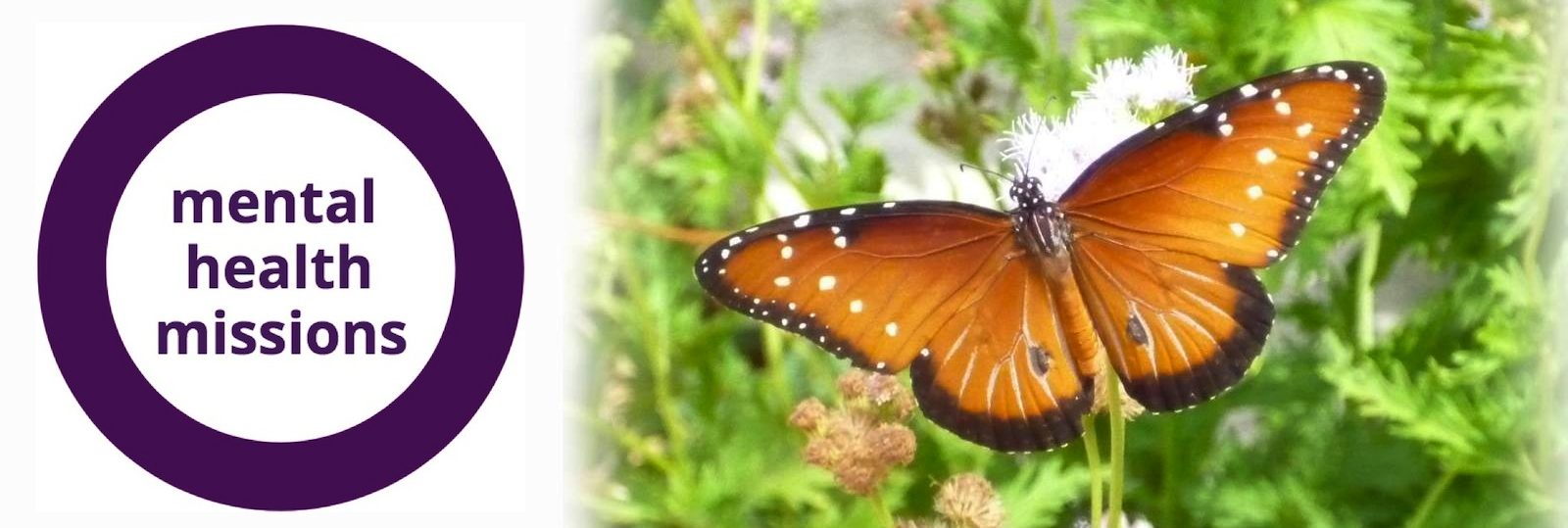Mental Health treatment is often difficult to find and costly. The system can be hard to navigate and presents challenges that can be discouraging. Peer support is an approach that helps individuals who are struggling. The practice fosters connection based on similar lived experiences and can offer unique solace during very difficult times
By Melanie Taussig
Thinking back to his childhood growing up in the small town of Hartford, Wisconsin, Joe Cardamone remembers feeling sensitive and fragile. “I have struggled with my mental health for as long as I can remember,” says Mr. Cardamone recalling the depressive episodes he experienced during adolescence. His first suicide attempt occurred at age fourteen and he remembers feeling isolated and alone at that time. Today, more than a decade later, Mr. Cardamone is more content and hopeful, a far cry from the bleak and somber existence that consumed much of his adolescence.
Mr. Cardamone’s experience as a teen was one that is becoming increasingly common as the rates of mental health issues among adolescents are on the rise. This upsurge is beyond the angst that many have long perceived to be a stereotypical staple for teenagers. The issues teens are experiencing today are serious: major depression, debilitating anxiety, panic attacks, and ominous bullying. Mr. Cardamone can relate to the agony; he felt tormented during adolescence. Fortunately, he received treatment and found a support system that helped him address his depression. Today Mr. Cardamone is enrolled in a graduate school program and is pursuing a Masters Degree in Social Work. He has also found his professional calling: working for Rocky Mountain Crisis Partners (RMCP), which provides mental health crisis intervention and prevention services for the State of Colorado.
In addition to crisis response services, the organization also offers a designated Peer Support Line as part of its community services. Mr. Cardamone is a Peer Support Program Manager at RMCP. Peer support is when an individual uses their own lived experience to support and guide others who are struggling with similar (and sometimes not so similar) experiences. In his role, Mr. Cardamone oversees a group of peer support specialists who are working with callers all-day and everyday. The peer support team at RMCP fields calls from individuals who have issues ranging from isolation to depression and anxiety to delusional thinking. As Mr. Cardamone explains, “We serve anyone who needs emotional support in the moment. People who have survived suicide attempts or had substance use journeys. As peer support specialists we are using our lived experience to support others.”
Peer support emerged as a social justice movement during the 1970’s in an effort to provide a voice to those with mental illness, a population that had been historically marginalized and oppressed. Peer support was introduced to emphasize value on personal experiences, impart dignity, and express empathy. Providing an opportunity for people to speak openly and be vulnerable with others who have been through familiar experiences is precisely the goal of peer support. “It’s about meeting people where they are at, validating, and normalizing [their experiences] and saying ‘I can relate,’” says Mr. Cardamone. “When you’re going through a really difficult time there’s a lot of incentive for talking to someone who’s been there.”
At RMCP peer support professionals go through a robust training program designed to teach methods about fostering connections, achieving balance in relationships, and recommending helpful coping mechanisms. Peer support specialists are guided to be active listeners, and learn how to selectively self-disclose personal experiences. The training is essential as it educates staff how to balance being a good listener with opening up about past personal struggles. “Lived experience,” says Mr. Cardamone, “is the main credential for being a peer support specialist. That is a professionals’ biggest strength.’ You can study theories and concepts in books but discussing things that you have lived through takes on a whole different meaning.” He adds that the practice of peer support can be extremely intense. “Peer support can be like doing emotional gymnastics with people.” The potential for such intensity is one of the reasons it is necessary for peer support specialists to have the proper training to do this job.
Peer support, not clinical treatment but its own valuable intervention with unique benefits
Peer support is not tantamount to treatment, however it certainly can be a good complement. When a patient sees a mental health provider, it is generally to address the presenting concern or diagnosis such as depression or addiction. “Peer support addresses all of the grey stuff,” says Mr. Cardamone. “It’s holding space for people. It’s like going through a really bad break up, you want to talk to someone who has been through a really bad break up [because of their ability to relate].”
When a patient meets with a mental health provider it is possible that individual may feel intimidated because of the provider’s credentials and expertise. With peer support, there is no hierarchy. Peer support specialists do not provide clinical evaluations, assessments, or diagnoses. Given that peer support is not hierarchal, some may question how the relationship is different than a friendship. Mr. Cardamone explains, “There is structure to the role [of a peer support specialist] as well as structure in the discussions that are taking place between the client and professional staff member.” Another distinction of peer support from a friend is that peer support specialists learn how to implement and maintain boundaries with clients.
Because peer support professionals have often walked similar walks to individuals with whom they are working, they can frequently empathize with challenges that might be hard for others to relate to. For example, being given a list of therapists to call by a case manager can be a daunting task for an individual with a mental health diagnosis. These calls often amount to unanswered voicemail messages, getting wrong numbers, and learning that a particular provider is no longer in practice. Few can understand the frustration of such experiences but when another person has lived through something similar, it can create a bond and establish trust. “The foundation of the relationship in peer support is connection,” says Mr. Cardamone.
While the majority of peer support services are provided to those who are struggling, this practice can also be a valuable resource for other populations including family members who are trying to gain a better understanding of their loved one’s illness and for healthcare practitioners, who may want to learn about personal experiences that can be associated with a clinical diagnosis. Peer support can provide a personal account about how an experience manifests and the feelings associated with that experience. Mr. Cardamone explains that clinicians often come to the table with erudition regarding the diagnoses for which they are treating patients but may not be as knowledgeable about the emotional experience. Peer support can offer a window into what that experience may look and feel like for an individual.
At Rocky Mountain Crisis Partners the Peer Support program is conducted exclusively via phone however, in other settings peer support is offered in alternative capacities. Peer support can take place in-person, in a group format or online. In a group setting, it is common that individuals who share a similar experience, diagnosis, or condition gather together to discuss their feelings and commonalities. Usually a peer support specialist facilitates the group. As has been the case with many facets of life, technology has provided innovation for how peer support is offered and accessed. There are online peer support groups and websites that can help people in the journey toward recovery.
As he reflects on his own recovery journey, Mr. Cardamone expresses gratitude for having arrived at a better place. However grateful he is for his own success, Mr. Cardamone is also realistic and takes it one day at a time. “I still struggle on certain days,” he says. “I ping pong [with emotions] but it’s more balanced now. I have a beautiful life and I live with mental health issues.” Mr. Cardamone did not personally have peer support in the thick of his own mental health crisis. He acknowledges that it is possible for people to get better sans peer support, but believes that the practice can greatly aid in an individual’s healing and recovery.
Had peer support been available to Mr. Cardamone as a teen, he believes it would have been helpful. “I would have felt so much more safe and at peace if I would have had someone who I could have been completely vulnerable and honest with. I wish I would have had [peer support] because even if I couldn’t have avoided my own mental health issues, I would have had connection and I think that would have made me love myself more.” That is why Mr. Cardamone is dedicated to doing this work today. He finds solace knowing that the clients who benefit from the peer support program at RMCP are being granted an opportunity to talk openly about their feelings with someone who will listen free of judgment. Mr. Cardamone hopes the results will lead to callers experiencing greater self-compassion, as he wishes he could have as a teenager.
Recently Mr. Cardamone had a chance to survey an individual about her experience with peer support. He recollects the caller telling him, ‘I love the peer support line and it has changed my life.’ That profound impact is not lost on Mr. Cardamone who becomes visibly emotional when talking about the monumental difference that peer support has made for this client. “This is one of the first times that someone has treated this person like a human being. Peer support has given her connection and accountability,” he says. “She looks forward to speaking to someone who really gets her and feeling that support on the other end of the line.” Mr. Cardamone sees that restored sense of personal dignity as a win. He sums it up, “Peer support is hope for people. And, it’s justice.”
If you would like additional information about peer support, consider the following resources:
Peer Support– Mental Health America

Joe Cardamone is a Peer Support Program Manager at Rocky Mountain Crisis Partners (RMCP). For more information about the Peer Support Line at RMCP click here. Photo courtesy of Mr. Cardamone.
5 Benefits of Peer Support:
• Connection. Oftentimes when people feel depressed, overwhelmed, or anxious there may be a void of connection to others. Peer support can be a way that someone who may otherwise feel isolated gains a sense of personal connection, particularly because there might be a common experienced shared between the peer support specialist and the client.
• Validation. If an individual feels alone and isolated in their experience, it may prompt emotions of sadness and melancholy. Peer support can help an individual feel validated and heard in their experience. It can also help an individual to feel a greater sense of worth.
• Normalization. Feelings of isolation can prompt loneliness. Knowing that someone else has experienced similar feelings can help an individual to feel as though his or her experience is not abnormal, which can be both meaningful and assuring.
• Purpose. Peer support can provide purpose both for the client and for the peer support professional. The idea behind peer support is to listen to and reinforce a client in their individual experience. This can provide purpose to the work that the peer support specialist is doing and help the client to recognize his or her own purpose and value.
• Hope. Mental health issues like depression, anxiety, and persistent feelings of panic can be debilitating for people. In the midst of emotional despair, it is not uncommon for an individual to lose hope. Peer support can be a lifeline of hope for someone who is struggling. A peer support specialist opening up about their own challenges may be very comforting in the moment and allow the client to have trust and share their experience. That solace and connection can be a catalyst to bringing about or restoring hope for a person.
© 2019 Mental Health Missions


 by
by 

